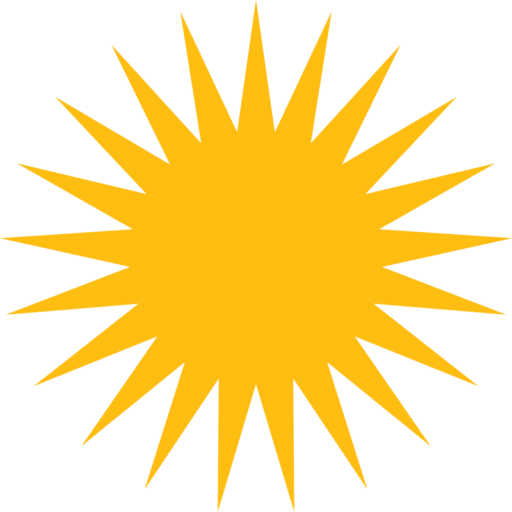Kurdish and extinct Anatolian languages such as Hittite, Luwian, Lycian, and Lydian share similar vocabulary and belong to the same language family. The similarities are not limited to language but also extend to religions, mythology, and cultural elements. Having lived as neighbors since antiquity, the Kurdish language and its vocabulary show significant similarities with all Anatolian languages.
| Indo-European | Kurdish | Common Anatolian | Hittite | Luwian | Lycian | Lydian |
|---|---|---|---|---|---|---|
| *egni- (fire) | agir | agniš | ||||
| *bhrátér- (a brother) | bra | brafr- | ||||
| *do- (to give, to take, exchange) | da | *da- | ||||
| *daru - tree, *deru- (firm, solid, a tree) | dar | *daru | taru- | tarweja- | ||
| *deiwo-, *dyeu- (god of sky) | dêw | *diu- | ||||
| *ekw-, *akw- (water, to drink) | Vexwar-(in) | *ekw- | ekw- | ahw- | ||
| *en (in, enter, into) | hundir | anda | anda | nte | ||
| *pā- | bav/bab/*pa- | atta | tata | tede | tata | |
| *g'enu- (a knee, a clan) | çeng, çen (with angle), çong, çog, çok (knee) | *genu- a knee | ||||
| *gwen- (a wife, a woman, queen) | jin, gyn | *gwana - a woman | ||||
| *Hap- (water) | av, aw | *hap - a river, a stream | hapa- | hapi- | ||
| *kost-, *ost- (a bone) | hestî, estî | *hasta - a bone | hastijas | |||
| *owi- (sheep) | mî, avis (pregnant) | *hawa - a sheep | hawi- | |||
| *kes- (to scratch) | kêr(kirin) | *kes - to scratch | kiša- | |||
| *gwhen- (to kill) | -kuj- | *khwen - to beat, to hit | kinu- | |||
| *bherg- (high) | berz | *phrokhu - high | parku- | parrai- | ||
| pl-t- (wide, full) | fireh | *ploha - wide | palhi- | palha- | ||
| ser | ser/sara | šarri- (big) | hri | sarra | ||
| sreu- (to flow, to swim) | şir- (purl of water) | *srei - to flow | sarlata- (libation) | |||
| sta- (to stand) | -stan (place, as in Kurdistan) | *sta - to stand | ||||
| *newo- | nû (new) | newa- | ||||
| *ster- | stêr | šittar (a star) | ||||
| baş, weş (good) | wasu (the good) | |||||
| *ner-, *aner-t- (man's strength) | nêr (male) | innari- (strength) | annarummi- (strong) | |||
| *ebho- (that) | ev, eve (this) | apa- | apa-(this,that) | ebe- (this, he, that) | ||
| *por-st-i- | paş (backward, back) | appa | appa- (back, backwards) | |||
| *per- | pêş (forward), ber (in front of) | pere (forward) | ||||
| *kwi- (relative pronoun) | ku (that, which) | kui- | kui- (which, that) | qi-, qy- | ||
| *n- (not) | na-, ni-, ne- | ni-, niš- (not; negative particle) | ||||
| *part- 'to divide' | perçe (divide, piece) | parta- (part of a body) | ||||
| *ped- (a foot) | pî, pa | pata- | pati- (a foot) | |||
| *mé (me, my) | min (I'm), em (us) | ammel (my) | amu, êmu, êmi, -mu (I, me, my) | êmi- (my) | ||
| *bhru (log, beam, wooden causeway) | pir, pird, koprî (bridge) | pri- | fra- (across, through, by-) | |||
| mêr (man) | mari- (man, warrior) | mireñ- (man), mari- (man, warrior) | ||||
| *duwo, *dwo' (two) | du | tuwa- (two) | tuwa (two) | |||
| şer (fight) | sarh- (to attack) | sarhija- | zrqqi- (to fight, to attack) | |||
